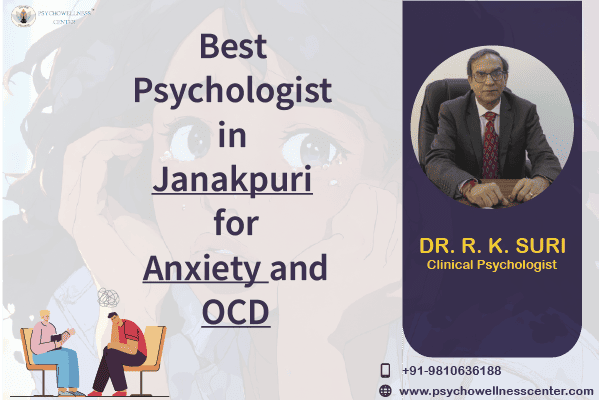Restoring Power of Positive Memories

Our memories play a powerful role in shaping who we are and how we experience life. Positive memories, in particular, have the potential to bring comfort, joy, and a sense of gratitude. However, during difficult times or stressful periods, we may lose touch with these uplifting recollections, leaving us feeling disconnected or weighed down by negative thoughts. Learning to restore the power of positive memories can have a transformative impact on our mental and emotional well-being, helping us build resilience and find peace in the present moment.
The Importance of Positive Memories
Positive memories are more than just happy thoughts; they are mental snapshots of moments when we felt loved, accomplished, peaceful, or connected. These memories provide a mental and emotional well-being refuge during challenging times, reminding us that good things have happened and can happen again.
According to research, recalling positive experiences activates the brain’s reward system, releasing chemicals like dopamine and serotonin. These neurotransmitters are associated with feelings of happiness, satisfaction, and contentment. Positive memories can help us maintain a balanced outlook on life, even when faced with adversity.
Studies have shown that individuals who regularly reflect on positive memories are better equipped to manage stress, and academic pressure, experience fewer symptoms of depression, and enjoy higher levels of life satisfaction. The power of positive memories lies in their ability to influence our current mood and outlook, guiding us toward a more optimistic mindset.
Why We Lose Touch with Positive Memories
Despite their importance, we sometimes lose touch with positive memories, especially when life becomes overwhelming. There are several reasons for this:
- Negative Bias: People are naturally inclined to focus more on bad experiences than good ones. This evolutionary trait helped our ancestors survive by paying more attention to threats. However, in modern life, this bias can cause us to dwell on failures, fears, and disappointments while overlooking positive moments.
- Stress and Anxiety: When we are stressed or anxious, our mind often narrows its focus on immediate problems, making it harder to recall positive experiences from the past. During periods of heightened anxiety, our brain tends to prioritize thoughts of worst-case scenarios over comforting memories.
- Depression: Depression can distort the way we think and remember, causing us to forget or dismiss past positive experiences. People struggling with depression often feel that good things are distant or irrelevant to their current situation, which can create a barrier to accessing positive memories.
- Busy Lifestyles: In today's fast-paced world, we are constantly juggling responsibilities, deadlines, and distractions. This can leave little room for reflection on past moments of joy, as we rush from one task to another.
While these factors can cause us to lose touch with positive memories, the good news is that we can actively work to restore their power and bring them back into focus.
How to Restore the Power of Positive Memories
Restoring the power of positive memories involves consciously revisiting and engaging with these moments in meaningful ways. Here are some practical strategies to help you reconnect with the uplifting memories in your life:
- Keep a Gratitude Journal:- One of the most effective ways to reconnect with positive memories is by keeping a gratitude journal. Writing down moments for which you are grateful helps you reflect on the positive aspects of your life. Each entry is an opportunity to relive a pleasant memory and reinforce the emotional impact it had on you Gratitude journaling can include memories big and small, such as a heartwarming conversation with a loved one, a moment of success at work, or simply a peaceful walk in nature and increase self-confidence and self-esteem. By writing these experiences down regularly, you create a lasting record of positive memories that you can revisit whenever you need a mood boost.
- Visualize Your Positive Experiences:- One effective technique for bringing back pleasant memories is visualization. Close your eyes and bring to mind a specific moment that made you feel happy, loved, or fulfilled. Picture the scene in as much detail as possible, including the sights, sounds, and smells of that moment. How did you feel during that experience? What made it special? By engaging your senses and emotions through visualization, you can relive the joy of that memory and strengthen its impact on your current mindset. Regularly practicing visualization can help keep positive memories vivid and accessible, even during difficult times.
- Share Memories with Loved Ones:- Talking about positive memories with friends or family can help strengthen those experiences and create a shared sense of joy. Reminiscing about a fun vacation, a family celebration, or a milestone achievement can bring the memory back to life and allow others to join in the positive feelings associated with it. Sharing positive memories also deepens emotional connections with loved ones. It can remind you of the strong support system you have and the many joyful experiences you’ve shared, reinforcing a sense of belonging and happiness.
- Create a Memory Box or Scrapbook:- Sometimes, physical reminders of positive memories can help restore their power. Creating a memory box or scrapbook allows you to gather items that are meaningful to you, such as photographs, letters, souvenirs, or personal mementos. Each item can serve as a trigger for positive memories, helping you reconnect with moments of joy and comfort. Whenever you feel overwhelmed or disconnected, revisiting your memory box or scrapbook can serve as a tangible reminder of the good things in your life and the positive experiences you’ve had.
- Practice Mindfulness:- Mindfulness is the practice of staying present and fully engaged with the moment. While it might seem counterintuitive, mindfulness can help restore the power of positive memories by reducing stress and creating space for reflection. When you are mindful, you are less likely to be caught up in negative thoughts or distractions, allowing you to recall positive experiences more clearly. Incorporating mindfulness into your daily routine can also help you create new positive memories by allowing you to fully appreciate and savor the present moment.
- Revisit Meaningful Places:- Sometimes, physically revisiting places associated with positive memories can help trigger those experiences. Whether it’s your childhood home, a favorite vacation spot, or a park where you spend time with friends, returning to these locations can evoke feelings of nostalgia and joy. These places hold emotional significance and can serve as powerful anchors to the positive experiences you’ve had in the past.
- Use Positive Memory Cues:- Memory cues are stimuli that trigger specific recollections. You can restore positive memories by surrounding yourself with sensory reminders of joyful experiences. For example, listening to a song that reminds you of a happy time, smelling a scent associated with a loved one, or eating a favorite meal from your childhood can bring positive memories flooding back. By consciously incorporating these cues into your environment, you can make it easier to access positive memories when you need them most.
Conclusion
Positive memories are a valuable resource for emotional resilience and mental well-being. While stress, anxiety, trauma, and depression can make it difficult to access these memories, there are many practical strategies to restore their power. By keeping a gratitude journal, visualizing happy moments, sharing memories with loved ones, and using memory cues, you can strengthen the influence of positive experiences in your life. In challenging times, these memories can offer comfort, hope, and perspective, reminding us that life holds many moments of joy, connection, and fulfillment.
Psychowellness Centers in NOIDA, Faridabad, Dwarka, and Vasant Vihar make accessing mental health care easier for Delhi NCR residents.
Contribution:- Ms. Sakshi Dhankhar Counselling psychologist and Dr. R K Suri offer Clinical Psychologist, services at the Psychowellness Center through TalktoAngel.
References
- Watkins, E. R., & Teasdale, J. D. (2004). Adaptive and maladaptive self-reflection in depression. Journal of Affective Disorders, 82(1), 1-8.
- Fredrickson, B. L. (2001). The role of positive emotions in positive psychology: The broadn-and-build theory of positive emotions. American Psychologist, 56(3), 218-226.
- Bryant, F. B., & Veroff, J. (2007). Savoring: A new model of positive experience. Psychology Press.




SHARE